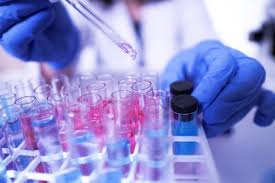
The Importance of Genetic Testing
Genetic testing, also known as DNA testing, has revolutionized the field of medicine and science by providing valuable insights into an individual’s genetic makeup. This technology allows healthcare professionals to identify genetic variations that may be associated with certain diseases or conditions, enabling more personalized and targeted treatment plans.
Medical Applications
Genetic testing plays a crucial role in diagnosing inherited disorders such as cystic fibrosis, sickle cell anemia, and Huntington’s disease. By analyzing an individual’s DNA, healthcare providers can assess the risk of developing certain conditions and tailor preventive measures accordingly. Additionally, genetic testing can help determine the most effective medications for a patient based on their genetic profile.
Family Planning
For couples planning to start a family, genetic testing can provide valuable information about their risk of passing on genetic disorders to their children. This knowledge allows couples to make informed decisions about family planning options, such as in vitro fertilization with preimplantation genetic diagnosis (PGD) to avoid passing on hereditary conditions.
Ancestry and Genealogy
Beyond medical applications, genetic testing has gained popularity in the realm of ancestry and genealogy. Companies offering direct-to-consumer DNA testing kits allow individuals to uncover their ethnic origins and connect with distant relatives through shared DNA matches. This has opened up new avenues for exploring one’s family history and heritage.
Ethical Considerations
While genetic testing offers numerous benefits, it also raises ethical concerns related to privacy, consent, and potential misuse of genetic information. Safeguarding individuals’ genetic data is paramount to ensure confidentiality and prevent discrimination based on genetic predispositions.
Conclusion
In conclusion, genetic testing is a powerful tool that holds immense potential for improving healthcare outcomes, guiding personalized treatment approaches, and unraveling the mysteries of our ancestry. As technology advances and ethical guidelines evolve, harnessing the benefits of genetic testing while safeguarding individual rights remains a crucial endeavor in the field of genetics.
Five Essential Tips to Consider Before Undergoing Genetic Testing: Guidance, Privacy, Emotions, Interpretation, and Family Impact
- Consult with a genetic counselor before taking a genetic test to understand the implications.
- Research the testing company’s privacy policies to ensure your data is protected.
- Be prepared for possible emotional reactions upon receiving genetic test results.
- Discuss the results with a healthcare provider to fully understand their significance.
- Consider how the results may impact family members and communicate openly with them.
Consult with a genetic counselor before taking a genetic test to understand the implications.
Before undergoing a genetic test, it is highly recommended to consult with a genetic counselor to gain a comprehensive understanding of the potential implications. A genetic counselor can provide valuable insights into the test process, interpret the results accurately, and offer guidance on how the information may impact one’s health, family planning decisions, and emotional well-being. By seeking guidance from a professional in genetic counseling, individuals can make informed choices and navigate the complexities of genetic testing with clarity and confidence.
Research the testing company’s privacy policies to ensure your data is protected.
When considering undergoing a genetic test, it is essential to research the testing company’s privacy policies to safeguard the protection of your genetic data. Understanding how your information will be stored, shared, and used is crucial in maintaining confidentiality and preventing any potential misuse of your genetic information. By verifying that the testing company has robust privacy measures in place, you can proceed with confidence knowing that your data is being handled responsibly and ethically.
Be prepared for possible emotional reactions upon receiving genetic test results.
It is important to be prepared for possible emotional reactions upon receiving genetic test results. The information revealed through genetic testing can have a profound impact on individuals and their families, potentially eliciting a range of emotions such as relief, anxiety, sadness, or uncertainty. It is essential to approach the results with sensitivity and seek support from healthcare professionals or counselors if needed to process and cope with any emotional responses that may arise. Taking proactive steps to address these emotions can help individuals navigate the implications of the test results and make informed decisions about their health and well-being.
Discuss the results with a healthcare provider to fully understand their significance.
It is essential to discuss the results of a genetic test with a healthcare provider to gain a comprehensive understanding of their significance. Healthcare professionals can provide valuable insights into the implications of the test results, including any potential health risks or conditions identified. By consulting with a healthcare provider, individuals can receive personalized guidance on interpreting the results and making informed decisions regarding their health and well-being. Open communication with a healthcare provider ensures that individuals have the necessary support and information to navigate the implications of genetic testing effectively.
Consider how the results may impact family members and communicate openly with them.
When undergoing a genetic test, it is essential to consider how the results may impact family members and communicate openly with them. Genetic information can have implications for not only the individual being tested but also their relatives, as certain genetic variations may be hereditary. By sharing the results transparently with family members, individuals can facilitate informed decision-making regarding their own health and potentially identify preventive measures or screenings that could benefit their loved ones. Open communication within the family ensures mutual support and understanding, fostering a united approach to managing any genetic predispositions that may be revealed through testing.
